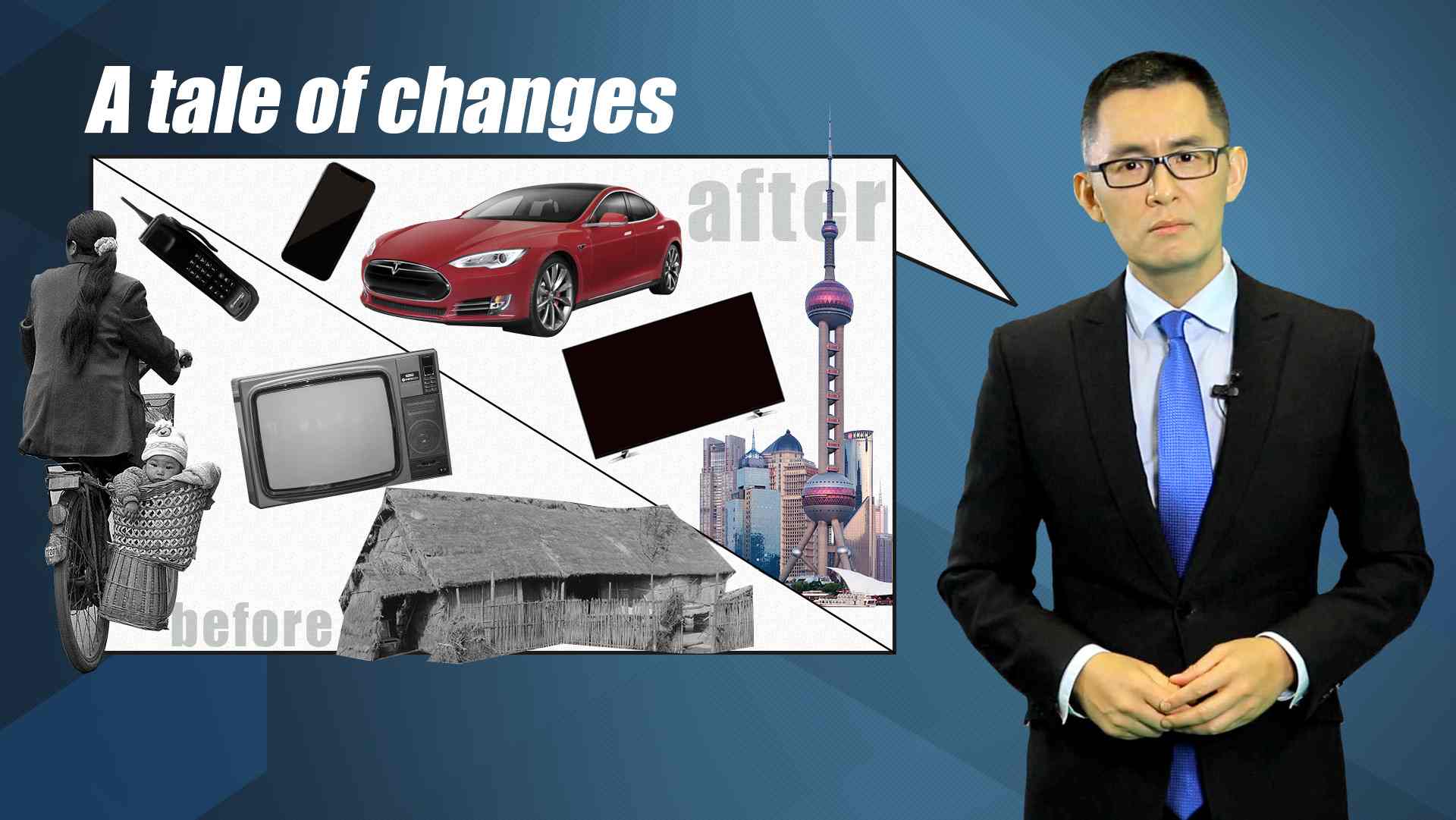
Opinion
08:35, 21-Jan-2019
A tale of changes
Updated
21:32, 28-Jan-2019
Zou Yue
04:43

Some say reform and opening-up are a revolution, others claim they are an awakening. But let's be less melodramatic. I would say they are a return to common sense.
From Shang Yang in the 4th Century BCE to Wang Anshi in the 11th Century, all the way through Emperor Guang Xu in 1898, reform has long been a constant of Chinese history. Deng Xiaoping did not invent reform in 1978, he simply put it into practice again – but in doing so, he changed humanity.
Own your idea, don't let the idea own you
Since the Chinese communists took power, they have constantly worked to improve the country. But such a pursuit has sometimes been misleading and disorientating. China paid a great price to understand that the relation between the state and the market is not an either/or prospect but both/and.
Reform is thus a process of trial and error. When people's communes didn't work, the Chinese people turned to household farming. When a planned economy led us nowhere, the Chinese had no qualms trying market competition.
The Communist Party of China didn't just inherit Marxism, it developed it with their own ideas, and never got dogmatic. The greatest transformation thus happened: A poor agricultural country became an economic powerhouse.
Do the right thing
The key to success is resilience. You know you are right when you see it. Deng saw an opportunity and he knew he was right. The Chinese economy's share of the world economy grew from a mere 1.8 percent in 1978 to a staggering 18 percent in 2017.
But this isn't anything new, it is simply China returning to its 16th-century status of accounting for one-third of the world economy. Just as Abraham Lincoln liberated the slaves and Franklin D. Roosevelt pushed for the New Deal, Deng liberated a dormant giant and gave the world a strong push.
China's experience supports the idea that globalization boosts the wealth of poor countries and the Chinese people have been successful in tapping into this potential to create a better life.
China's labor size, participation, and gender equality are nothing to scoff at, and productivity is on the rise. It would be mind-boggling if a population of this size with such strong work ethics did not succeed.
Yes, globalization has stripped away the chances of some people, especially those in advanced economies; but if we look at the bigger picture, we must admit the world is a better place because what China has become.
Looking to the future
The future of China lies in continuing to open up and be one with the world. Chinese leaders have learnt the lesson that the country cannot and should not be alone; it needs to join the global current because China's economic miracles are a two-way street.
Businesses from around the world come to China for its huge market, and millions of Chinese create products and services for the world.
That cycle will continue and evolve as China climbs up the ladder of value. China will take on the mantle of importer and exporter, maker and consumer, creator and retailer as it changes and evolves, just as the rest of the world does.
The Chinese people believe in 穷则变 变则通 通则久 – "When it is exhausted, it mutates; by mutation, it continues; by continuity, it endures."
China is a partner, a rival, an agent of change and a product of reform – sometimes all at once.
To live with change is the past, the present and the future.
Script: Zou Yue
Animation: Pan Yufei
Cover photo: Liu Shaozhen
Video and design: Li Linxi, Liu Shuo, Zhao Yuanzhen, Ma Yaru
(If you want to contribute and have specific expertise, contact us at opinions@cgtn.com.)

SITEMAP
Copyright © 2018 CGTN. Beijing ICP prepared NO.16065310-3
Copyright © 2018 CGTN. Beijing ICP prepared NO.16065310-3